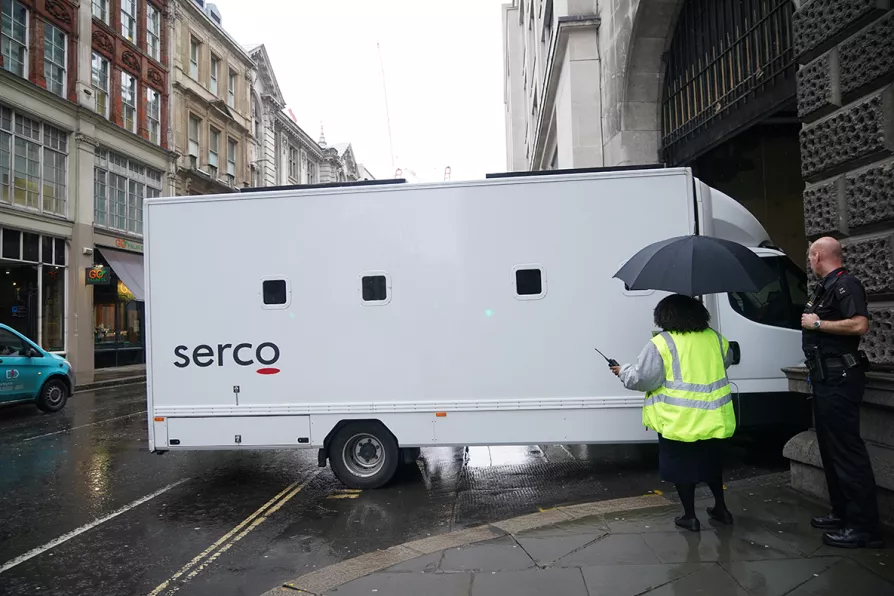The PM says Mandelson 'betrayed our values' – but ministers and advisers flock to line their pockets with corporate cash, says SOLOMON HUGHES

 A Serco prison van arriving at the Central Criminal Court, better known as the Old Bailey, in central London, March 31, 2023
A Serco prison van arriving at the Central Criminal Court, better known as the Old Bailey, in central London, March 31, 2023
PRIVATISER Serco held private talks with Keir Starmer, Rachel Reeves and other shadow cabinet members before the election about getting more work from a Labour government, according to comments made by its chief executive at this month’s Labour conference.
Reeves previously publicly condemned Serco and promised to reverse public-sector outsourcing, but it looks like Labour has now abandoned these positions.
Serco chief executive Anthony Kirby was addressing a Labour conference fringe meeting that his firm paid think tank Demos to organise. Thanks to funding the meeting, discussing Labour’s “missions” and “public services,” Kirby was on the panel for the event. He told the meeting, held in a 40-seater room in Liverpool’s Hilton hotel, that “before the election we were really excited by some of the conversations we had with Sir Keir and Rachel and some of the shadow cabinet.” By Rachel, he meant Rachel Reeves, so it looks like Serco’s boss is on first-name terms with the Chancellor.

Martin Taylor, the hedge-fund multimillionaire who has poured millions into pushing Labour rightwards, helped finance Lucy Powell’s supposedly dissenting campaign — suggesting her victory was not the ‘soft-left’ rebellion some have claimed, says SOLOMON HUGHES

SOLOMON HUGHES asks whether Labour ‘engaging with decision-makers’ with scandalous records of fleecing the public is really in our interests

Despite Labour’s promises to bring things ‘in-house,’ the Justice Secretary has awarded notorious outsourcing outfit Mitie a £329 million contract to run a new prison — despite its track record of abuse and neglect in its migrant facilities, reports SOLOMON HUGHES












